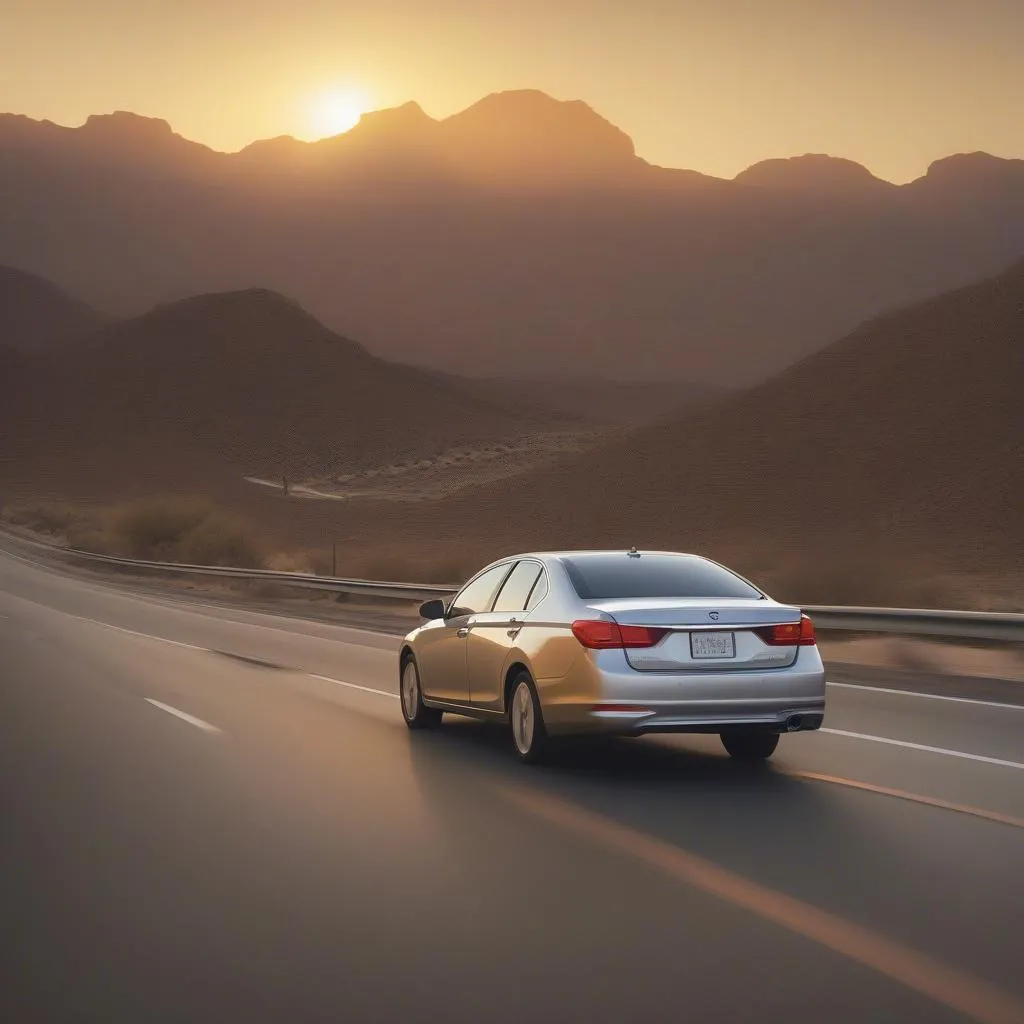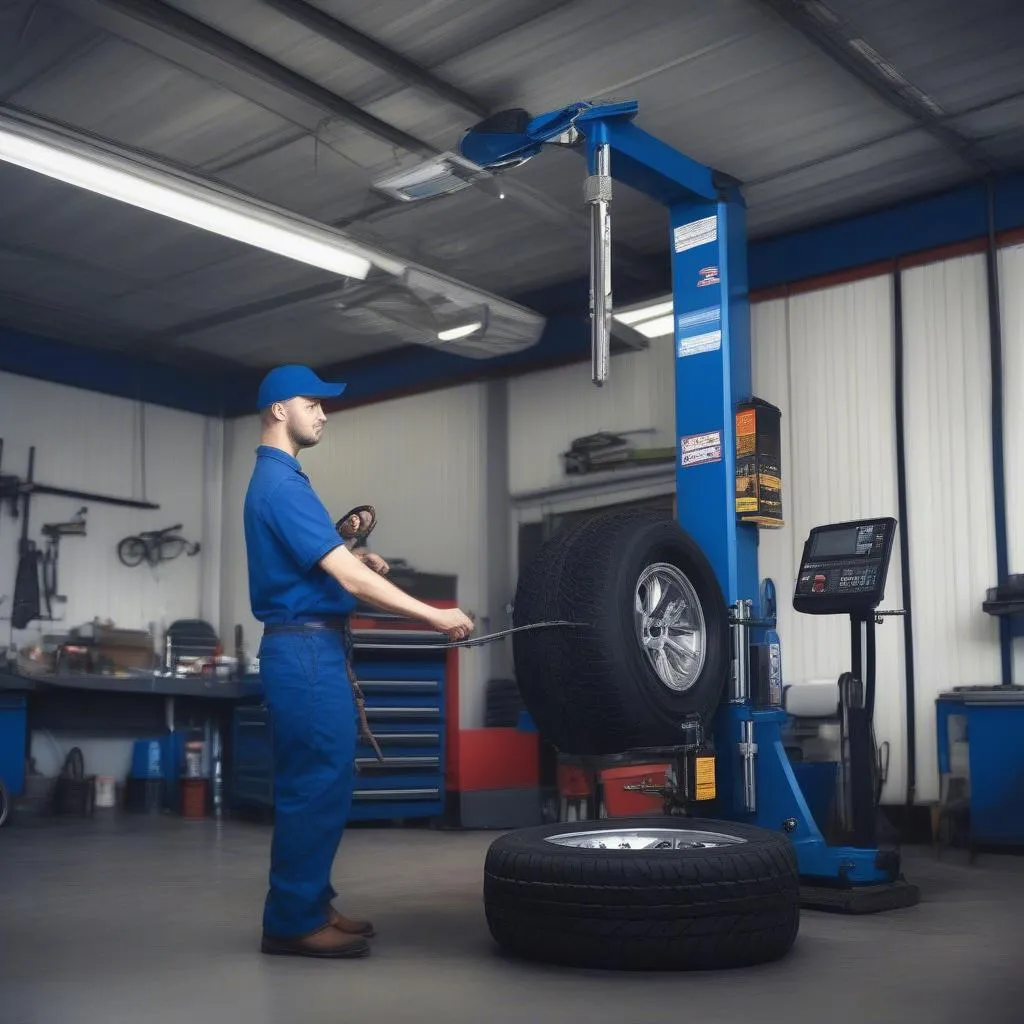Have you ever been cruising down the highway, the open road stretching before you, only to have your car start shaking like a nervous chihuahua as you hit 50 mph? It’s not exactly the feeling of freedom and adventure you were hoping for, right? Well, don’t worry, you’re not alone. This is a common problem that many car owners face, and it can be caused by a variety of factors. Let’s dive in and diagnose this automotive tremor.
Decoding the Shakes: What Does it Mean When Your Car Shakes at High Speeds?
Before we jump into solutions, it’s important to understand why your car might be doing the jitterbug at higher speeds. Imagine this: You’re a mechanic in a bustling Los Angeles auto repair shop, and a frantic driver, Sarah, comes in with a 2018 Audi A4, complaining about vibrations above 50 mph.
From a mechanic’s perspective, this points to a potential issue with the car’s systems that come into play more prominently at speed. This could be anything from imbalanced tires to worn-out suspension components. Each of these components plays a crucial role in ensuring a smooth and safe ride, especially at higher speeds.
Unveiling the Culprits: Common Reasons for Car Shakes at 50+ mph
Now, let’s get down to the nitty-gritty. Why does your car shake when you hit that 50 mph mark? Here are the usual suspects:
1. Tire Troubles: The Unbalanced Act
Think of your tires as the shoes of your car. If they’re unevenly worn or out of balance, it can feel like you’re walking with a pebble stuck in one shoe.
- What to look for: Uneven tire wear, vibration in the steering wheel.
- Solution: Get your tires balanced or rotated by a professional. If the wear is significant, you might need new tires altogether.
2. Alignment Issues: A Matter of Direction
Proper wheel alignment ensures your car travels in a straight line. Misalignment can cause a pull to one side and, you guessed it, vibrations at higher speeds.
- What to look for: Uneven tire wear, car pulling to one side.
- Solution: Schedule a wheel alignment at a trusted mechanic or dealership.
3. Worn-Out Suspension Components: The Shock Absorbers
Your car’s suspension system, particularly the shocks and struts, is designed to absorb bumps and dips in the road. Over time, these components wear down, leading to a bumpier, shakier ride, especially at higher speeds.
- What to look for: Leaking or damaged shocks/struts, excessive bouncing after hitting a bump.
- Solution: Have a mechanic inspect your suspension system and replace any worn-out components.
4. Brake Problems: A Grabby Situation
While less common, warped brake rotors can also cause vibrations, particularly when braking at higher speeds.
- What to look for: Vibrations in the steering wheel or brake pedal when applying the brakes at speed.
- Solution: Consult a mechanic to inspect your brake rotors and pads. They may need to be resurfaced or replaced.
5. Driveline Dilemmas: From Axle to Joint
The driveline is responsible for transferring power from your engine to the wheels. Issues within this system, like a worn-out CV joint or a bent axle, can lead to vibrations, especially under acceleration.
- What to look for: Vibrations that worsen when accelerating, a clicking sound when turning.
- Solution: A thorough inspection by a mechanic is needed to diagnose and repair any driveline issues.
 Car shaking on the highway
Car shaking on the highway
Car Shakes at 50 mph: FAQs and Expert Insights
Here are some of the most frequently asked questions about car shakes at 50 mph:
Q: Is it dangerous to drive my car if it shakes at high speeds?
A: It depends on the severity and the cause. A slight vibration might be a minor issue, but significant shaking can be dangerous, indicating a serious problem that needs immediate attention.
Expert Insight: As automotive expert Dr. Emily Carter notes in her book “The Complete Guide to Car Maintenance”, “Ignoring vibrations, especially at high speeds, is akin to playing Russian roulette with your safety. Address the issue promptly to avoid potential accidents.”
Q: Can low tire pressure cause my car to shake at 50 mph?
A: While low tire pressure can contribute to a rougher ride, it’s less likely to cause shaking specifically at 50 mph. It’s more likely to result in overall poor handling and reduced fuel efficiency.
Q: I just got new tires, but my car still shakes. What could be wrong?
A: New tires don’t automatically rule out tire-related issues. They might not have been balanced properly during installation, or there could be an issue with the wheel itself.
 Mechanic Inspecting Tire for Balance
Mechanic Inspecting Tire for Balance
Don’t Let the Shakes Ruin Your Drive: Taking Action
Experiencing the shakes in your car can be frustrating and potentially dangerous. Here’s what we recommend:
- Don’t Ignore the Signs: Pay attention to any vibrations, especially those that occur at specific speeds or during certain driving conditions.
- Inspect Your Tires: Check your tires regularly for wear and tear, and ensure they are properly inflated.
- Seek Professional Help: If you suspect a problem, don’t hesitate to take your car to a trusted mechanic or dealership for a thorough inspection and diagnosis.
Remember, regular car maintenance is key to preventing issues like these from arising in the first place.
Need More Help? We’re Here for You!
Still have questions about why your car shakes at 50 mph or need assistance with other car-related issues? Don’t hesitate to reach out! Contact us via WhatsApp at +84767531508. Our team of automotive experts is available 24/7 to provide guidance and support.
Related Articles:
Here are a few articles you might find helpful:
- Car Shaking When Going Over 50
- Why Does My Car Tremble When I Stop?
- Car Shaking When Accelerating Past 40
We’re dedicated to providing you with the information and resources you need to keep your car running smoothly and safely. Happy driving!